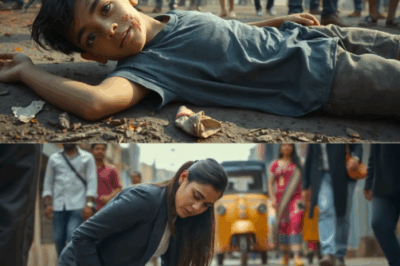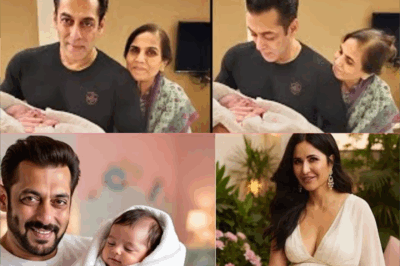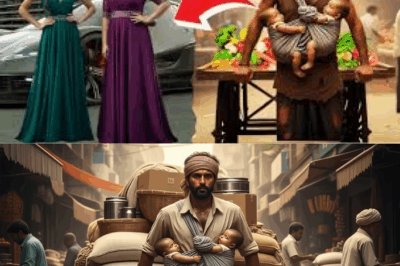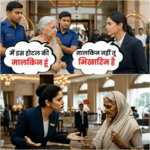Will Salman Khan Become a Dad Soon? Actor Reveals Shocking Secret !
.
.
Will Salman Khan Become a Dad Soon? The Superstar’s Surprising Revelation
Mumbai — For decades, Salman Khan has been Bollywood’s “most eligible bachelor,” a figure of fascination, speculation, and undeniable charisma. At 59, even as his peers retire or slow down, Salman continues to dominate the silver screen and headlines alike. But in a recent appearance on the chat show Two Much with Kajol & Twinkle, he gave fans something new to talk about — not a film announcement, not a relationship update, but a revelation: he plans to be a father one day.
This confession has sparked waves of excitement and debate. How will an unmarried, high-profile star like Salman enter parenthood? Is he considering adoption, surrogacy, or something else entirely? Let us dive into the full story — what he said, how he framed it, and what might lie ahead.
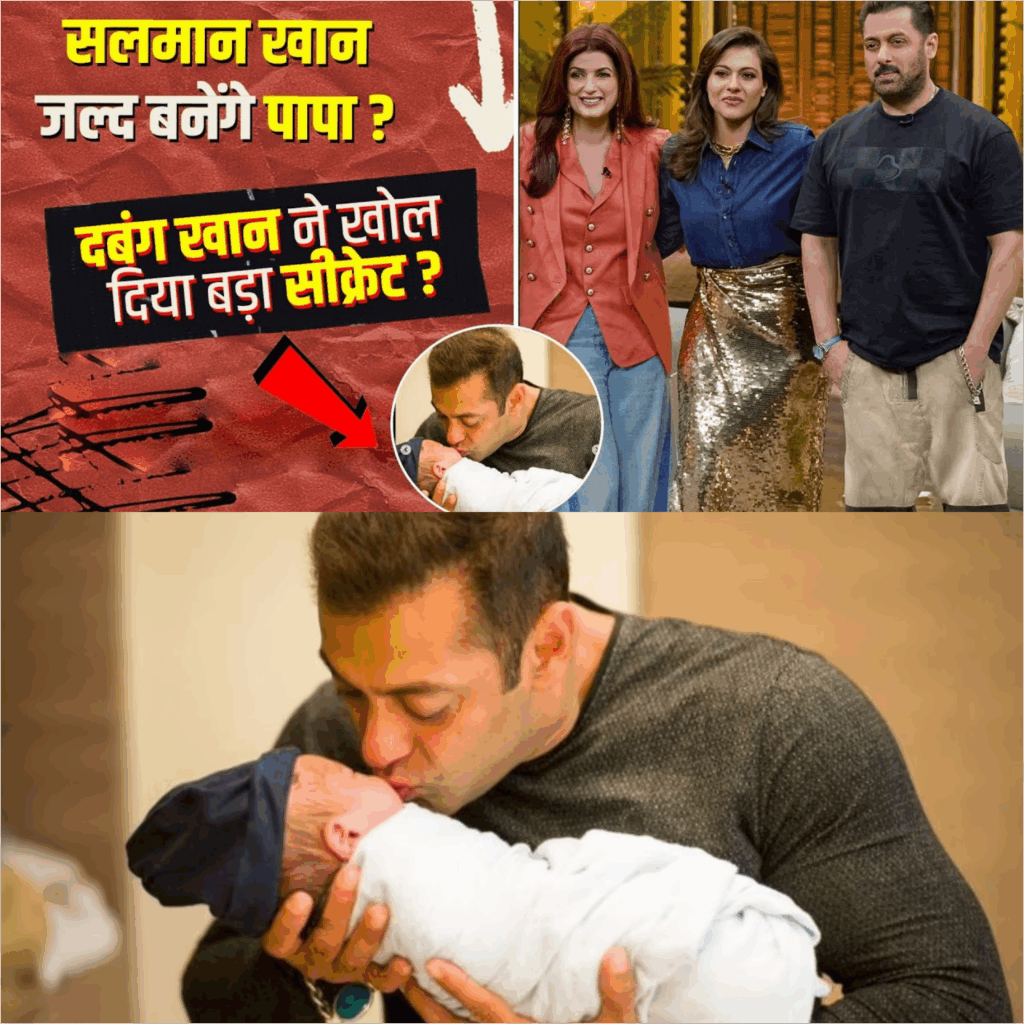
From Bachelorhood to Fatherhood: What Salman Actually Said
In the episode aired recently, Salman appeared alongside Aamir Khan and hosts Kajol and Twinkle Khanna. As discussions ranged from his past relationships to personal philosophies, the topic of children surfaced. When asked directly by Twinkle whether he had plans to adopt, Salman categorically declined that option. But his next lines caught everyone off guard:
“Children, I will have one day… soon. It’s just that eventually one will have kids. Let’s see — God willing.”
He went on to clarify that while he doesn’t want to opt for adoption, he imagines a future where children will figure into his life:
“There’s a whole village, a whole district, my family. The women in my family are there to take care of the children.”
He cited names familiar to his fans — Alizeh, Ayaan, Aayat (his nieces/nephews) — saying by the time he has kids, they could also support in caretaking.
Twinkle Khanna also joked in that conversation: “Maybe you might already have 12 kids and not know about it.” Salman smiled, replying, “You would have gotten to know if I had.”
Taken together, these comments mark one of the most explicit statements Salman has made about wanting to become a father. In earlier interviews, he often danced around the subject, citing complexity over commitment. But now, there’s a direct affirmation.
Notably, he also addressed marriage. While he didn’t commit to a wedding, he spoke about what makes relationships last: alignment in growth, mutual respect, and avoiding insecurity when one partner overtakes the other.
Public and Fan Reactions: A Wave of Emotion
As soon as the interview aired, fans flooded social media with joy, predictions, and speculation. Many took his words as confirmation of an eventual, strategic plan to become a parent. Some saw it as a turning point — the man known to remain unmarried openly declaring the possibility of fatherhood.
Media outlets jumped on the story immediately. The Indian Express ran the headline: “Salman Khan, 59, says he will have children, family will raise them.”
Bollywood gossip portals speculated on possible paths — surrogacy, co‑parenting, or even an arrangement using a surrogate mother. Others wondered whether legal or societal obstacles might thwart such plans.
Skeptics, however, noted that public statements can differ from actual intentions. They cautioned against treating the interview as proof of immediate steps. But for fans, it offered hope — a new chapter in Salman’s personal narrative.
Context & Background: Why This Matters
Salman Khan’s love life (or lack thereof) and personal routines have always been a subject of public fixation. His bachelorhood has become part of his brand — famously “unmarried, unclaimed, uncompromising.” Many of his relationships ended without long-term commitment.
Because of that reputation, any talk of parenthood signals a change. It raises questions about legacy, responsibility, and how one might balance stardom with family life at this stage.
Salman has, in the past, discussed his health struggles as well — specifically, his battle with trigeminal neuralgia, a painful facial nerve disorder. That condition may influence how he views responsibility, longevity, and commitments going forward.
Moreover, by emphasizing that his family and extended network would pitch in with childcare, Salman is signaling a collaborative approach — not solo parenting. He’s making clear he envisions a web of familial support rather than going it entirely alone.
Legal, Biological & Logistical Hurdles
Expressing the desire is one thing; executing it, especially in India, is another. Several obstacles exist:
Legality & Marriage: Indian personal laws often tie parental rights to marriage or formal legal arrangements. As an unmarried man, Salman might need surrogacy or guardianship frameworks to legitimize parents’ rights.
Surrogacy Ethics & Regulations: India has regulations around surrogacy, intended to restrict commercial practices. Salman would need to navigate legal compliance to ensure it’s ethically and legally permissible.
Biological Factors & Age: At nearly 60, Salman would have to consider fertility, medical screenings, risks associated with late parenthood, and future planning. Egg donors, surrogate mothers, or advanced reproductive assistance would likely come into play.
Public Scrutiny & Media: His life is constantly under the lens. Questions of lineage, custody, DNA, media exposure, and public opinion would all be magnified.
Long‑term Care: Salman’s mention of family support hints that he anticipates the practical burdens — childcare, schooling, emotional upbringing — will rely on his network. But whether that model works at scale remains to be seen.
Why His Statement Is More Than Just a Soundbite
Salman’s words carry weight not only because he’s a megastar, but because he’s breaking a narrative. Many celebrities in India delay or avoid committing to parenthood; to declare it publicly is rare.
Also, his acknowledgment of wanting kids while rejecting adoption is interesting. It signals a preference for biological offspring, which has emotional and symbolic relevance in Indian culture. Yet, he rejects adoption entirely, which could spark debate over whether he is limiting his options unnecessarily.
By framing it with family support — “I have a whole village, district…” — he is also planting an image: one where parenthood doesn’t rest solely on him, but is a shared endeavor.
Finally, his statement may influence public narratives on celebrity life decisions, gender roles, and the acceptance of nontraditional parenthood.
What to Watch in Coming Weeks & Months
Given the bombshell nature of this revelation, certain developments are worth monitoring:
Clarifications & Updates: Will Salman specify timelines, legal routes, or surrogacy plans? Will he share his partner (biological or legal), or whether marriage is required for this path?
Medical Disclosure: Will he consult fertility specialists? Will he publicly share any health or reproductive challenges?
Legal Moves: Will we see petitions, agreements, or court filings related to surrogacy, guardianship, or custody structure?
Media Reactions: How will outlets spin this? Will it be reported positively or with cynicism? Will rumors proliferate — “secret child,” “hidden relations,” etc.?
Support System Activation: Will family members (sisters, nieces, nephews) speak about their roles? Will Salman name people he trusts to help?
Public & Fan Response: Will fans take it as confirmation or skepticism? Will this shift his image — toward fatherly respect, or backlash from conservative viewpoints?
A Bold Statement, A Delicate Dream
Salman Khan’s declaration — “Children, I will have one day” — might not immediately translate into children. But it marks a turning point. For the man who’s resisted marriage and remained an enigmatic bachelor, admitting a longing for fatherhood is a public acknowledgment of vulnerability, hope, and legacy.
Whether he follows through — and how — remains unknown. But for his millions of fans, this opens a new chapter to imagine: Salman the star, the brother, the friend… and possibly, Salman the father.
Let me know if you’d like a Hindi version of this article, or a short version (300–400 words) suitable for social media.
.
play video:
News
DM मैडम को नहीं पता था भीख मांगता बच्चा उनका अपना बेटा है जो 7 साल पहले खो गया था |
DM मैडम को नहीं पता था भीख मांगता बच्चा उनका अपना बेटा है जो 7 साल पहले खो गया था…
Congratulations! Salman Khan Announced To Become Father Of A Baby
Congratulations! Salman Khan Announced To Become Father Of A Baby . . Salman Khan Announces Plans for Fatherhood: Bollywood Superstar…
Sanjay Dutt fought a dangerous battle against cancer, the actor was diagnosed in the last stage.
Sanjay Dutt fought a dangerous battle against cancer, the actor was diagnosed in the last stage. . . Sanjay Dutt’s…
Bollywood And South Indian Actors Crying On Kajal Aggarwal Health Condition In Coma After Accident
Bollywood And South Indian Actors Crying On Kajal Aggarwal Health Condition In Coma After Accident . . Bollywood and South…
Kajal Aggarwal Son Crying For Her After Watching Her On Ventilator In ICU
Kajal Aggarwal Son Crying For Her After Watching Her On Ventilator In ICU . . Breaking News: Viral Reports Claim…
पत्नी जुड़वां बेटियों को छोड़ गई… अनजान कि वही आगे चलकर करोड़पति बनेंगी
पत्नी जुड़वां बेटियों को छोड़ गई… अनजान कि वही आगे चलकर करोड़पति बनेंगी एक छोटे से कस्बे में रमेश अपनी…
End of content
No more pages to load

